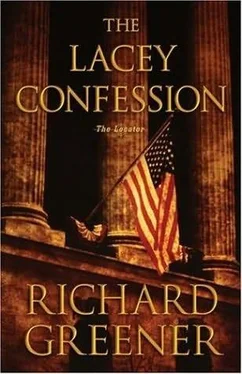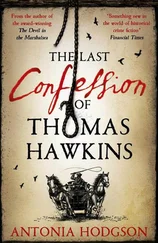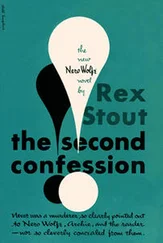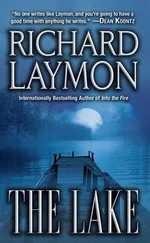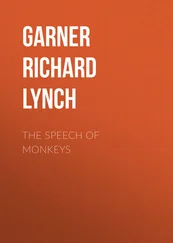Richard Greener - The Lacey confession
Здесь есть возможность читать онлайн «Richard Greener - The Lacey confession» весь текст электронной книги совершенно бесплатно (целиком полную версию без сокращений). В некоторых случаях можно слушать аудио, скачать через торрент в формате fb2 и присутствует краткое содержание. Жанр: Шпионский детектив, на английском языке. Описание произведения, (предисловие) а так же отзывы посетителей доступны на портале библиотеки ЛибКат.
- Название:The Lacey confession
- Автор:
- Жанр:
- Год:неизвестен
- ISBN:нет данных
- Рейтинг книги:3 / 5. Голосов: 1
-
Избранное:Добавить в избранное
- Отзывы:
-
Ваша оценка:
- 60
- 1
- 2
- 3
- 4
- 5
The Lacey confession: краткое содержание, описание и аннотация
Предлагаем к чтению аннотацию, описание, краткое содержание или предисловие (зависит от того, что написал сам автор книги «The Lacey confession»). Если вы не нашли необходимую информацию о книге — напишите в комментариях, мы постараемся отыскать её.
The Lacey confession — читать онлайн бесплатно полную книгу (весь текст) целиком
Ниже представлен текст книги, разбитый по страницам. Система сохранения места последней прочитанной страницы, позволяет с удобством читать онлайн бесплатно книгу «The Lacey confession», без необходимости каждый раз заново искать на чём Вы остановились. Поставьте закладку, и сможете в любой момент перейти на страницу, на которой закончили чтение.
Интервал:
Закладка:
He earned more money on November 22, 1963, than for any job he ever did. And he did nothing. His risk had more than justified his price. Like the others, he followed his prearranged escape plan. He met a small private plane at an airport south of Dallas. Posing as a West German businessman, an anti-Communist looking to buy arms for his Eastern brothers, he had chartered the plane two days earlier. His destination was New Orleans. Once there, he made his report. After three days, and three memorable nights in the French Quarter, he took a commercial flight to Mexico City. There he made a connection to Havana before finally returning to his family in a small farming village in Slovakia.
Less than a month later, the day before Christmas 1963 to be exact, the barn in which he was working burned to the ground. Trapped, unable to escape, he perished in the blaze. To save his family added grief, no autopsy on the charred remains was performed. The small bullet hole in the back of the farmer’s head was never discovered.
Two days after the assassination, as contracted for, Lee Harvey Oswald was shot dead. His shouted pronouncement to the press, his plea of innocence, was soon forgotten. As he was gunned down, Oswald was surrounded by Dallas Police officers. He was still inside Dallas Police Headquarters, handcuffed and in custody when it happened. A man simply walked up to Oswald with a drawn handgun and fired point-blank at his midsection. The whole world saw it, live on television.
The men’s room killing in Rome was local news for a day or two. The accident in Amman was not even reported. The tragedy in Slovakia also went unnoticed by the world at large. It was, however, the final detail. Within ninety days of the death of John F. Kennedy, the men who did the deed, as well as the man who stood falsely accused, were all dead themselves. Their killers had been retained professionally. They had no knowledge of who their victims were or what they might have done. Why they had been hired to kill someone, in a restroom, on a busy street or in a rural barn, would have been an impolite question. They knew only how much they were to be paid. Only one person, the man responsible for all this, knew the truth. Only Frederick Lacey knew. He wrote extensively, passionately, angrily about it in his private journal-the Lacey Confession.
November 24, 1963
The Chief Justice waited patiently on a beige love seat in the Oval Office. Summoned unexpectedly, he arrived at a hectic White House as quickly as he could. Later, in his diary, he remarked on the chaos pervading the West Wing that day. As he was led through the hallways, he noticed an unusual number of Secret Service agents. They were all over the place. They were openly armed. And everywhere he saw signs of moving in. “No time for compassion,” he wrote. “The King is dead. Long live the King.” There was tomorrow’s funeral, but it was Thanksgiving the Thursday coming that was on his mind. Thanksgiving, a day of joyous celebration, the quintessential American holiday, he always felt. A tribute to those who began this noble experiment. A reaffirmation of our own survival, our success, our perseverance in a hostile, new world. Now, that day lay in ruins, victim of a cowardly ambush. For the Chief Justice and millions of Americans, the unimaginable, the unthinkable, the impossible, had all come to be.
Immediately after returning to Washington from Dallas, Lyndon Johnson, the new American President, insisted on a full federal investigation. From the beginning he wanted a special commission. His mind was made up days before the official story was delivered to and devoured whole by a compliant American media. That account, given to the American people, had Johnson, a Texan himself, worried about the Attorney General in Texas, a man named Waggoner Carr. It was said that he, Carr, was about to start up his own inquiry. The murder had occurred in Texas. Carr was portrayed as an opportunist of the worst kind. The official story went on to say it was Abe Fortas, a Johnson crony and a man later nominated to be a Justice on the Supreme Court, together with Nicholas D. B. Katzenbach, a high-ranking member of the Justice Department, who presented the idea for the Warren Commission to Johnson on November 29. Still another Texas Democrat, Leon Jaworski, who ten years later would be among the most recognized people in the country, supposedly was assigned to take care of Waggoner Carr. Jaworski was to have him call off the dogs of Texas.
None of this was true or ever happened. Instead, it was President Johnson, who was determined before he ever came back to Washington, who pressured Chief Justice Earl Warren to head the commission investigating the death of John F. Kennedy. Warren wanted no part of it. He made that quite clear, in great detail in those entries he made in the final weeks of 1963 in his personal diary. According to Warren, Johnson called him to the White House before Kennedy was even buried. Warren met with the President on the 24th, offered to help, but did not agree to serve. Late on that night, following his meeting with Johnson, he wrote: “It never occurred to me that anyone would question that Lee Harvey Oswald assassinated the President of the United States-or that there would be any public speculation about some sinister motivation on his part-or that there would be widespread consideration he might be part of some larger plot or conspiracy. I never thought of it, that is, until today when President Johnson expressed such concern over the matter.”
Earlier that Sunday afternoon the Chief Justice sat alone in the Oval Office. He could not help but speculate-the couch on which he sat must have belonged to the dead President lying in state in the rotunda of the Capitol. Too sophisticated, too tasteful for Lyndon Johnson. It was an uncomfortable thought for him. One of many he said he had since this nightmare began. He’d seen the picture of Johnson being sworn in. He wrote of what he called the horrific sadness in Mrs. Kennedy’s eyes, the dress splattered with blood-her husband’s blood. That photograph had been on the front page of The New York Times, The Washington Post and newspapers all over the world. Johnson hurried Federal Judge Sarah Hughes out to the airport in Dallas. He didn’t wish to leave the scene of his ascendancy except as President of the United States. Who could blame him? Warren agreed that was the right decision. The Chief Justice heaved a sigh of relief. I’m glad it wasn’t me in that picture, he later wrote. It probably would be all I’d ever be remembered for. Sarah Hughes could be certain that picture, and none other, would top her obituary.
Now, noted Warren, things had gone from bad to worse. Lee Harvey Oswald, the apparent assailant, the man who killed John F. Kennedy, had himself been murdered, on television, in full view of the whole world. I saw it myself, he wrote. Jesus Christ! How could they let a thing like that happen?
The President appeared in the room as if from nowhere. He came through a wall panel that was also a hidden door. Warren heard his footsteps and looked up. He had no idea that door was there. “Afternoon, Mr. Chief Justice,” said Johnson, extending his hand. Warren rose to shake it. Lyndon Johnson was a very tall man, a bit funny looking, even ugly in person, according to some, yet still fit and thin despite many years living the good life, “high on the hog,” as he might have said when in Texas. Very high indeed. He looked as if he’d just showered, shaved and changed his clothes. Warren knew him well. The two men had met many times. Johnson was still a relatively poor Texas Congressman when they first crossed paths, and Warren only beginning then to dream of being Governor of California. “Now look at us,” he said to himself.
“Good afternoon, Mr. President,” he replied. My God! he wondered. Could it be? Yes. Lyndon Johnson really is the President of the United States! “I came over as soon as I could.”
Читать дальшеИнтервал:
Закладка:
Похожие книги на «The Lacey confession»
Представляем Вашему вниманию похожие книги на «The Lacey confession» списком для выбора. Мы отобрали схожую по названию и смыслу литературу в надежде предоставить читателям больше вариантов отыскать новые, интересные, ещё непрочитанные произведения.
Обсуждение, отзывы о книге «The Lacey confession» и просто собственные мнения читателей. Оставьте ваши комментарии, напишите, что Вы думаете о произведении, его смысле или главных героях. Укажите что конкретно понравилось, а что нет, и почему Вы так считаете.
